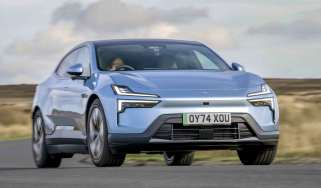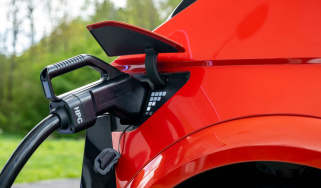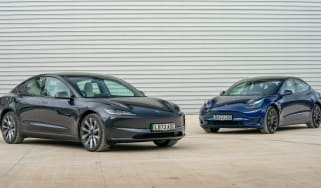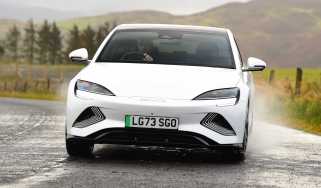Car pollution facts: from production to disposal, what impact do our cars have on the planet?
How much pollution does your car produce in its lifetime and how can you reduce it? Keep reading to find out
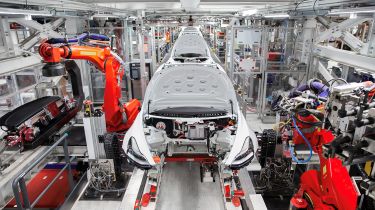
The pollutants produced over a car’s lifetime have a major impact on the environment.
It’s estimated that a car produces 10 per cent of its CO2s during production, five per cent when it is disposed of and the remaining 85 per cent produced during the car’s life.
Having said that, measuring all the pollutants produced over an individual car’s lifetime is tricky. You’d have to factor in the emissions produced by the collection and transportation of raw materials, and pollutants released transforming them into the rubbers, metals and plastics used to build a car.
The finished car then has to be transported to the showroom (which produces its own emissions), before it’s picked up by you. It’s at this point you need to consider tailpipe and non-tailpipe emissions, along with the emissions released producing, transporting and fitting new components to keep your car in tip-top condition over its life.

Finally, there’s the disposal stage, where everything about a car’s production is reversed – it’s broken down into its components and mostly recycled.
But how many tonnes of CO2s are produced during your car's life? Is it better to buy a petrol, diesel or electric car? What steps can you take to lower your car’s lifetime emissions? And are EVs as clean as they're cracked up to be?
How many CO2s are released during a car’s production?
Around 5.6 tonnes of CO2 are released during a petrol or diesel car’s manufacture on average, around three quarters of which are released during production of the steel body in white.
Building the average electric car produces 8.8 tonnes of CO2, 43 per cent of which can be attributed to the construction of the battery.
Is electric-car production more harmful to the environment?
EV production is more harmful to the environment than building a petrol or diesel car according to a report produced by Ricardo, a global engineering, environmental and strategic consultancy. It found that producing a battery electric vehicle releases about 8.8 tonnes of CO2 versus 5.6 tonnes for a petrol or diesel.
However, a BEV (battery electric vehicle) produces less harmful emissions over its entire life. The study found that a medium-sized petrol or diesel car produces around 24 tonnes of CO2 versus a BEV’s 18 tonnes.
What type of pollution comes from car exhausts?
The exhaust emissions from burning petrol and diesel contains pollutants such as carbon monoxide, nitrogen dioxide, benzene, formaldehyde and hydrocarbons.
Carbon dioxide traps radiation creating ground-level ozone. That prevents the Earth from cooling at night and warms oceans. Indirectly, carbon monoxide has the same effect.
Acid rain is caused when compounds like sulfur dioxide and nitrogen oxides are released into the air causing plant and crop damage. Benzine, meanwhile, causes smog, formaldehyde is plain toxic and hydrocarbons cause breathing difficulties.
What are non-exhaust emissions?
While we all know exhaust emissions cause pollution, they’re not the only emission released when you drive your car down the road; you also have to think about non-exhaust emissions.
The friction caused by your car's brakes releases particles that linger in the air and are harmful. Tyre wear produces similar particles and the Committee on the Medical Effects of Air Pollutants predicts these could make up 28 per cent of the microplastics floating in the ocean.
Even road wear produces tiny particles that end up in the atmosphere and the simple act of driving along the road can grind particles on the road surface down, before spreading them as they’re caught in your car’s turbulence.
Are petrol cars cleaner than diesels over a lifetime?
The lifetime emissions of a petrol car versus a diesel are close to identical. Petrol engine’s produce lower emissions for every gallon of fuel burned, but this is offset by the fact diesels are more efficient and burn less fuel than a petrol over the same distance.
How much of my car can be recycled?
When your car has come to the end of its useful life your next question will be – how much of it can be recycled?
Legislation in the UK dictates that 95 per cent of an end-of-life car should be recycled. Recyclable materials include everything from metals and plastics to glass and whole parts that can be put to use keeping another car on the road.
Electric cars are harder to recycle owing to their large batteries. UK legislation states that 50 per cent of an EV’s battery must be recycled – relatively easy as much of a battery is made up of wiring and plastics – but recycling battery cells themselves is trickier as they contain hazardous materials that are harmful to the environment
What can I do to reduce my car’s pollution?
While your car produces plenty of emissions over its life, there’s a lot you can do to reduce them. Our top tips for improving MPG fuel economy can give you lots of clever ways of reducing the pollutants produced by your car.

But some quick and easy tips include driving smoothly, removing unused items from the car that weigh it down and only fitting roof racks/bike carriers when they’re in use to reduce drag and improve fuel economy.
How can I choose a car that will be less harmful to the environment?
Big cars produce more emissions so if the kids have flown the nest and you find yourself left with a large SUV that you don’t need, trading it in for something smaller and more efficient will save you money and help the planet.
It also makes sense to consider what fuel suits your driving. If you do lots of miles, a modern diesel could actually produce fewer emissions than comparable petrol. Often drive in town? Then a petrol model's cleaner exhaust emissions make it the better option.
Want to know which cars have the smallest CO2 footprint over their lifetime? Read about the Green NCAP assessment programme...
Find a car with the experts



